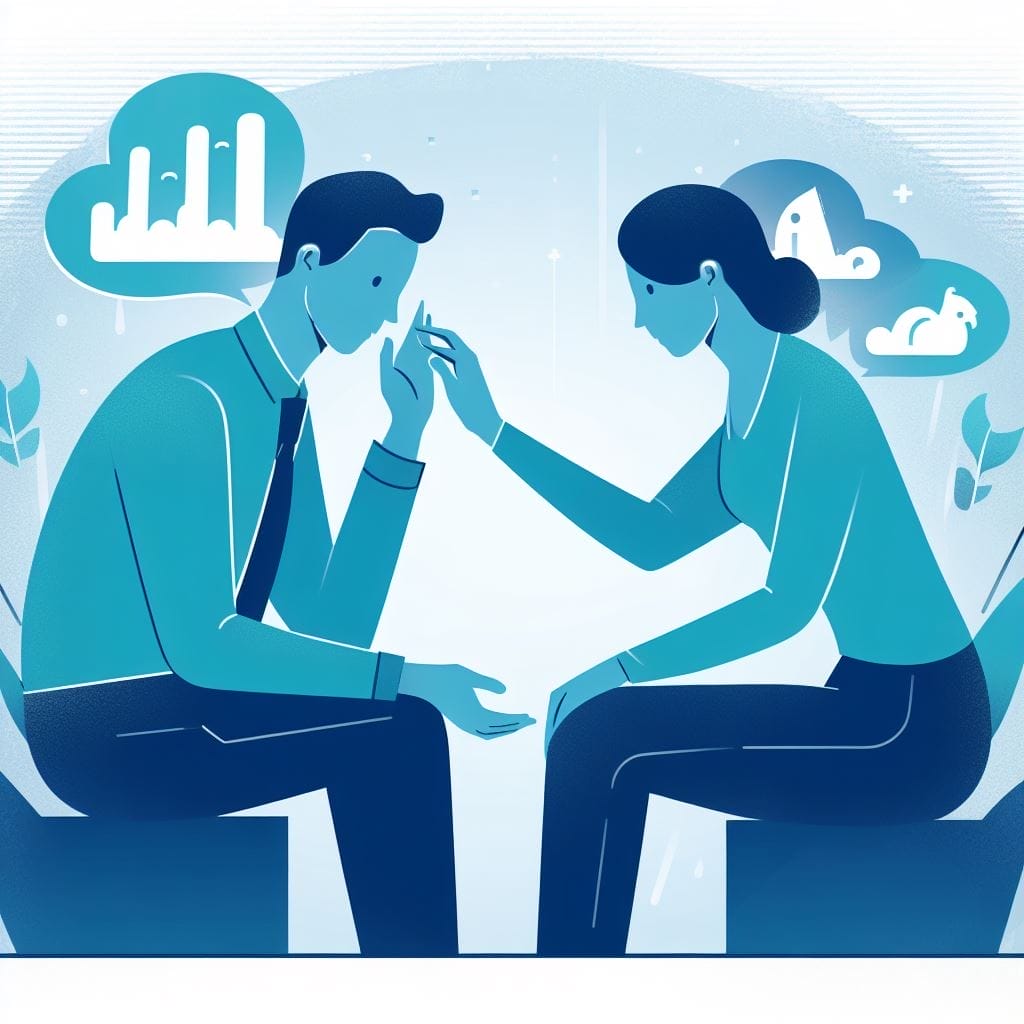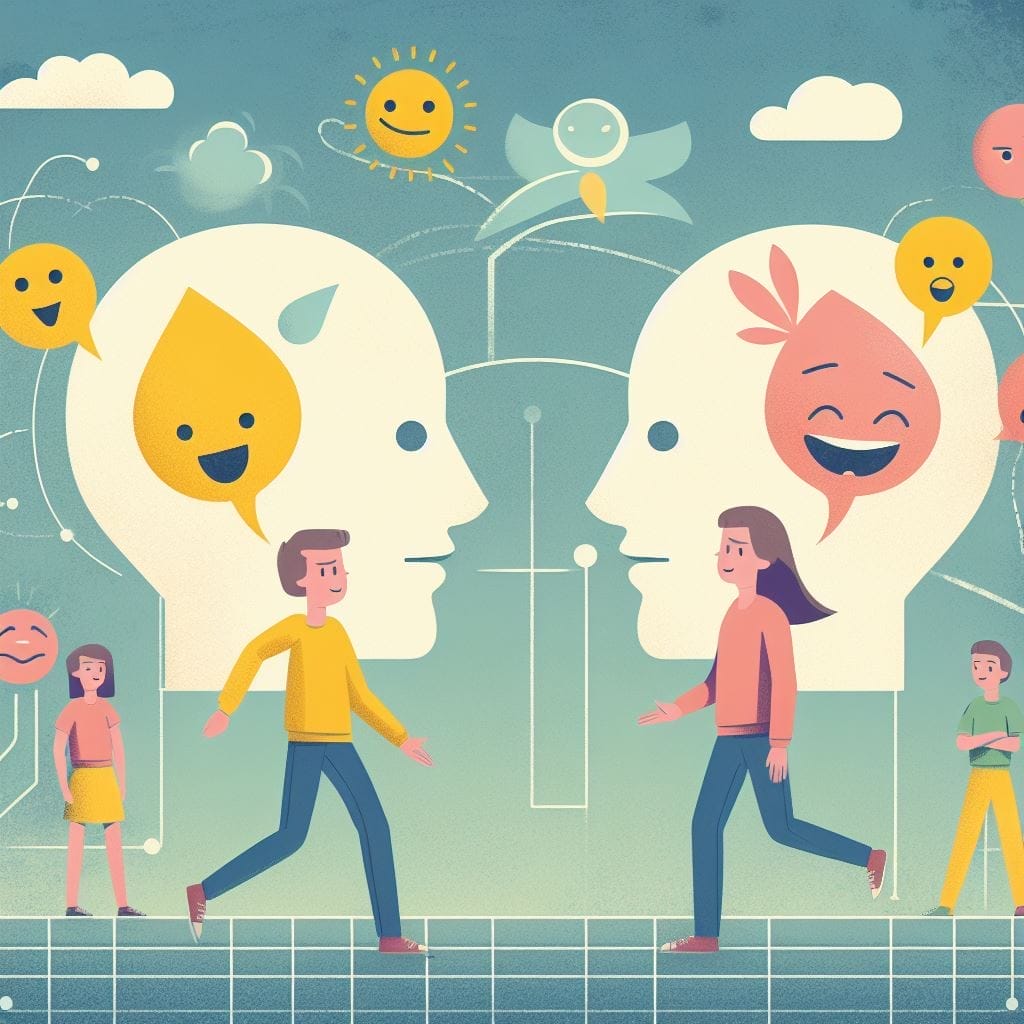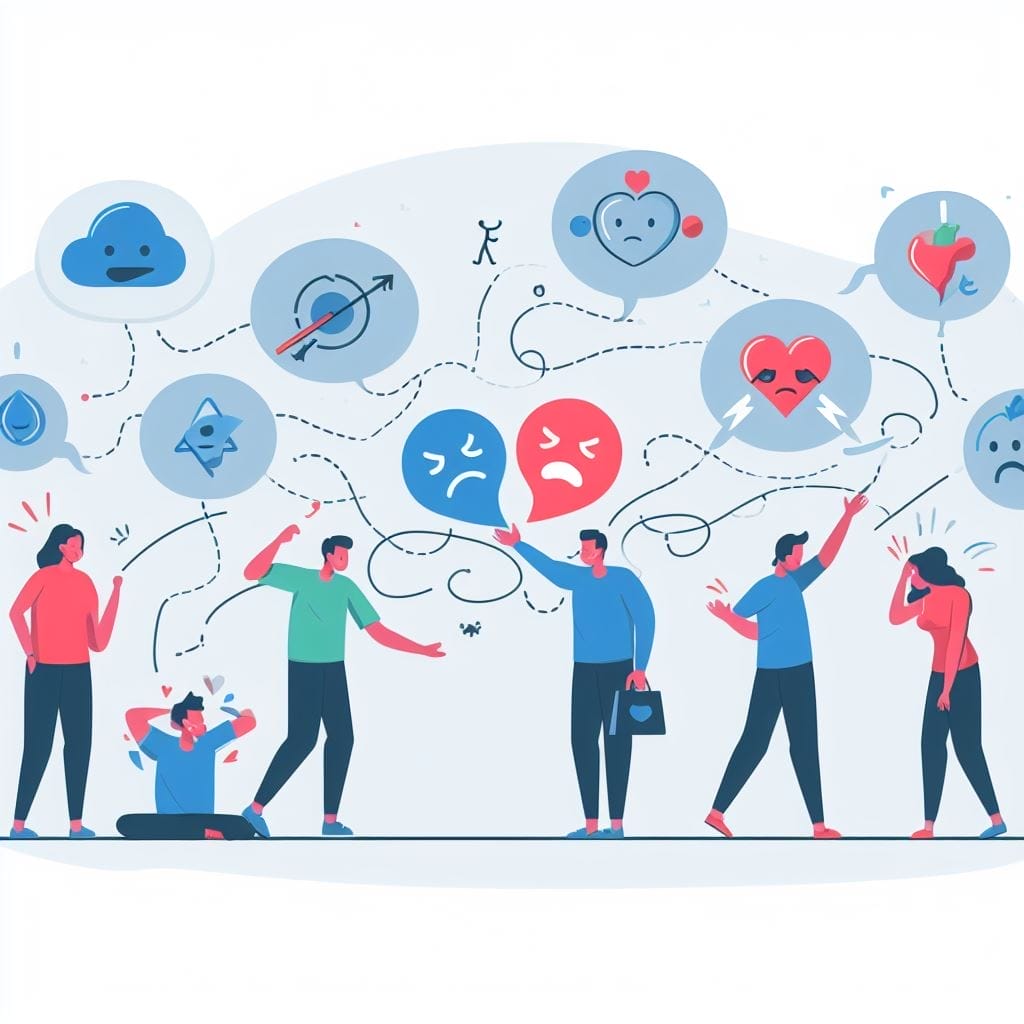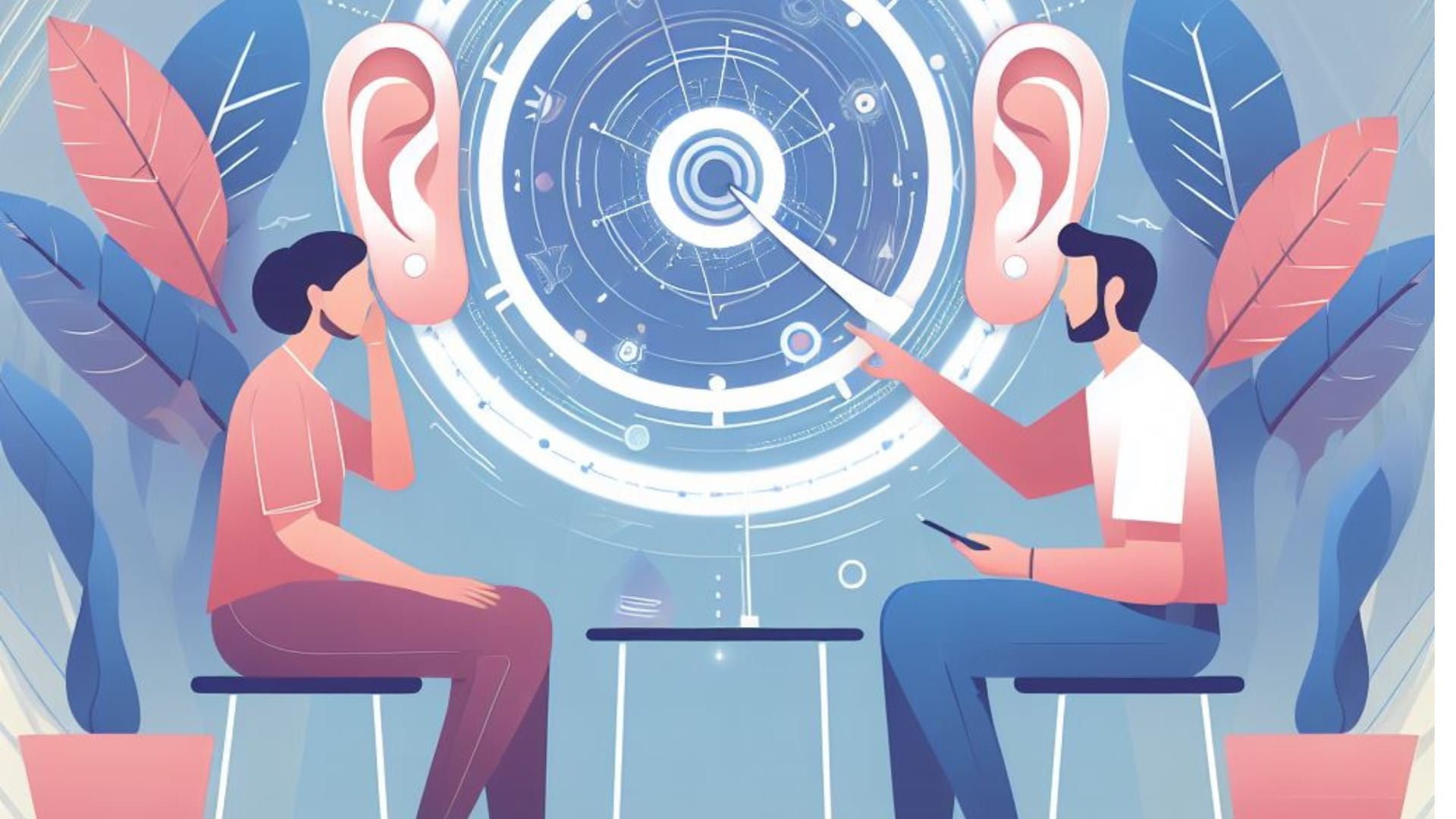Introduction
In the difficult dance of human connection, wherein feelings ebb and glide, empathy emerges as the silent conductor orchestrating a harmonious symphony of expertise. The capability to exercise empathy in relationships isn’t always merely an ability; it’s a transformative force that deepens emotional connections and fosters a profound feeling of mutual expertise. So today in this guide you will learn ‘How does empathy most likely improve a relationship.
At its essence, empathy is the artwork of stepping into someone else’s footwear, feeling the rhythm in their emotional nation, and letting the alternative person know they’re heard and understood. It goes beyond mere sympathy; it’s about cultivating empathy to look the sector through their eyes, an empathic exploration that builds bridges of connection.
In this exploration of empathy, we’ll delve into its multifaceted nature—how emotional intelligence, lively listening, or even body language play pivotal roles. Cultivating empathy is not just an effort to apprehend; it’s an invite to deepen, to foster a deep connection at the not-unusual ground of mind and feelings.
As we navigate the nuances of empathy, from battle decisions to overcoming misunderstandings, we embark on an adventure to completely present ourselves, growing spaces wherein others are probably to experience empathy. So, let’s adventure together into the world of empathy, unraveling its layers and discovering the transformative strength it holds within the tapestry of human relationships.
Key Takeaways
- Understanding Empathy: Gain insights into the concept of empathy and its specialty from sympathy and apathy.
- Explore the components that form the inspiration of empathetic connections.
- Empathy in Relationships: Learn strategies for constructing trust and connection through lively listening and emotional validation.
- Strengthen communique by way of incorporating emotional intelligence and fostering open talk.
- Acquire talents for resolving conflicts without judgment and embracing empathetic trouble-solving.
- Benefits of Empathy in Relationships: Experience expanded emotional intimacy using sharing vulnerable reviews and emotions.
- Enhance overall dating satisfaction via mutual know-how and assistance.
- Cultivate a greater compassionate connection, extending empathy beyond immediate relationships.
- Ways to Cultivate Empathy: Practice self-recognition and self-compassion as foundational factors of empathy.
- Develop empathy through energetic listening and a genuine attempt to apprehend perspectives.
- Engage in empathy-constructing sports and exercises to deepen your empathetic competencies.
- Overcoming Challenges in Embracing Empathy: Recognize and assign non-public biases and assumptions for extra-inclusive empathy.
- Navigate emotional fatigue and burnout by placing barriers and prioritizing self-care.
- Learn to increase empathy even in the direction of tough people, fostering a greater empathetic environment.
- Conclusion: Recap the paramount importance of empathy in relationships for emotional well-being.
- Receive encouragement to actively cultivate empathy, contributing to healthier and more fulfilling connections.
- Embrace the final thought on the transformative power of empathy, recognizing its pervasive impact across all aspects of life.

Comprehending Empathy
A. Explaining the concept of empathy
In its middle, empathy is the potential to recognize and proportion the emotions of another. It is going beyond mere sympathy or apathy, transcending right into a realm wherein emotional bonds are cast via real expertise.
B. Differentiating empathy from sympathy and apathy
In the complicated tapestry of emotions, it’s essential to discern between sympathy, apathy, and real empathy. While sympathy expresses compassion, and apathy indicates detachment, empathy entails getting into every other’s shoes, and experiencing their feelings as though they have been your personal.
C. Components of empathy
Empathy talents encompass various components, from emotional empathy to cognitive empathy. It’s the delicate artwork of studying between the strains, expertise unspoken emotions, and making genuine connections.
1. Emotional Empathy
Empathy involves more than just understanding; it calls for feeling the emotions of others. It’s the unstated language of the coronary heart that fosters deep connections and mutual expertise.
2. Cognitive Empathy
Beyond feelings, cognitive empathy is the ability to recognize every other character’s angle intellectually. It’s a talent that allows us to navigate numerous viewpoints, fostering open conversation and collaboration.
D. Empathy’s Place in Relationships
A. Building empathy to build trust
Empathy and belief are inseparable partners within the realm of relationships. The ability to empathize creates a safe space where individuals feel heard, understood, and valued.
B. Effective communication through empathy
In the elaborate dance of empathetic verbal exchange, words aren’t simply spoken; they end up bridges connecting hearts. Maintaining eye contact, listening without judgment, and acknowledging emotions pave the manner for powerful verbal exchange.
C. Building better relationships
Empathy acts as an effective tool for building and sustaining relationships. It involves now not just information about what someone says but additionally greedy the underlying feelings. This ability, though intrinsic to a few, is a talent that may be found out and honed for more meaningful connections.
E. Cultivating Empathy in Everyday Life
A. Practical steps for developing empathy
- Make Eye Contact: A simple but profound act that signifies your presence and engagement in a communique.
- Listen Actively: Start by making a conscious attempt to honestly pay attention, now not just pay attention.
- Put Yourself in Their Shoes: Imagine how you will sense in their scenario, fostering a deeper knowledge.
B. The Impact of Empathy on Society
As individuals cultivate empathy, its ripple effect extends to society at large. It’s not merely a personal attribute but a force that can shape communities, fostering understanding and unity.
Empathy in Interpersonal Bonds
Building Trust and Connection
1. Active Listening and Validation
In the symphony of conversation, energetic listening takes the middle stage. When we embody empathetic listening, we create a space wherein voices aren’t simply heard but understood. It’s about more than listening to words; it’s about acknowledging the emotions woven into each sentence. Imagine a conversation as a melody and active listening because of the harmony that makes it resonate.
2. Recognizing and Understanding Emotions
Empathy prospers while we end up emotion detectives, decoding the subtle cues that color our interactions. By tuning into emotions, we bridge the gap between spoken phrases and unstated emotions. It’s the ability to mention, “I feel there’s extra to this,” and allow the opposite individual to spread their emotional landscape.
Strengthening Communication
1. Emotional Intelligence in Empathetic Communication
Empathy and emotional intelligence are dance partners, transferring in sync to create a continuing know-how float. When we infuse our conversations with emotional intelligence, we navigate conversations with finesse. It’s no longer just about what we are saying but how we say it, spotting the emotional currents under the surface.
2. Encouraging Open and Honest Dialogue
True empathy prospers in an environment of openness. Encouraging sincere expression without fear of judgment opens the door to deeper connections. It’s about creating a safe space wherein people can percentage their minds and feelings without reservations.
Resolving Conflicts and Fostering Understanding
1. Avoiding Judgment and Blame
In the warmth of war of words, empathy acts as a cooling balm. Instead of pointing palms, it invitations us to understand differing views. Empathy dismantles blame, paving the way for mutual knowledge. It’s the distinction between announcing, “You did this incorrectly” and asking, “Help me understand your perspective.”
2. Empathetic Problem-Solving and Compromise
Empathy isn’t only a tender talent; it’s an effective device in warfare resolution. It propels us past a tug-of-struggle mentality and into collaborative problem-fixing. Through empathy, compromise turns into a bridge instead of a sacrifice, permitting relationships to flourish even in the face of challenges.

Benefits of Empathy in Relationships
A. Increased Emotional Intimacy: Unveiling the Depths of Connection
1. Sharing Vulnerable Experiences and Feelings
Embracing empathy opens the door to a realm of vulnerability. When individuals feel empathy, they invent a secure area to share their innermost studies and feelings. This mutual openness cultivates a profound feeling of connection, allowing companions, friends, or own family contributors to witness and assist each other in their rawest, most true states.
2. Deepening the Bond Between Partners/Friends/Family
At the coronary heart of lasting relationships lies the ability to recognize and resonate with each other. Empathy capabilities act as a bridge, permitting partners to navigate the problematic nuances of each other’s emotions. The result is a bond that goes beyond surface-stage interactions, delving into the intricacies of shared reviews and feelings.
B. Enhanced Relationship Satisfaction: The Power of Feeling Heard and Understood
1. Feeling Heard and Understood
In the tapestry of relationships, feeling heard and understood is a cornerstone of delight. Empathy permits people to attune themselves to the nuances of what’s being stated and, more importantly, what’s left unspoken. When partners actively interact in this empathetic alternate, it creates a dynamic in which everybody feels valued and recounted.
2. Mutual Support and Validation
Empathy isn’t merely a passive enjoyment; it’s an energetic force that propels relationships ahead. Partners who show empathy forge a path of mutual support and validation. This support becomes a powerful anchor, fostering an environment where challenges are faced together, triumphs are celebrated jointly, and the relationship thrives on a foundation of shared understanding.
C. Building a More Compassionate and Caring Relationship: Beyond the Bonds
1. Supporting Each Other in Times of Need
Empathy extends its reach beyond the immediate relationship dynamics. When companions empathize with others outside the connection, it amplifies the caring nature of the bond. Supporting every different in instances of need becomes 2nd nature, developing a ripple impact that extends compassion beyond the confines of the partnership.
2. Cultivating Empathy Beyond the Relationship
The impact of empathy isn’t always restrained to the interpersonal realm. Cultivating empathy in various elements of life enriches the individual and, by using extension, the relationship. Whether in expert settings or network interactions, the capability to apprehend others’ perspectives contributes to extra compassion and being concerned internationally.
How to Foster Empathy in Your Partnership
I. Engaging in Self-Compassion and Self-Awareness Practices
A. Understanding Your Emotional Landscape
Begin the journey towards empathy by turning inward. Acknowledge Your Emotions and embrace self-awareness. Recognizing and understanding your emotional landscape provides a solid foundation for empathetic connections.
B. Extending Compassion to Oneself
Practice Self-Compassion as a precursor to empathizing with others. Be gentle along with your struggles, for in doing so, you pave the manner for compassionate know-how in your relationships.
II. Trying to Comprehend Viewpoints and Feelings
A. The Dance of Perspectives
Navigate Different Perspectives in Relationships. Empathy flourishes whilst you actively seek to apprehend the precise lenses through which others view the world. It’s now not approximately agreeing but approximately appreciating various viewpoints.
B. Decoding Emotions
Delve into the intricacies of emotions. Decode the Emotional Tapestry woven with the aid of the ones around you. By spotting and validating emotions, you foster an environment in which empathy can thrive.

III. Developing Empathy Through Active Listening
A. The Power of Attentive Ears
Master the Art of Active Listening. It’s more than just listening to words—it’s the know-how of the nuances, the unstated emotions. Give your undivided attention, showing that you virtually care approximately what your companion is expressing.
B. Beyond Words: Nonverbal Cues
Read Between the Lines of Nonverbal Communique. Sometimes, the most profound expressions lie in gestures, facial expressions, and frame language. Pay interest to these subtleties for a deeper empathetic connection.
IV. Exercises and Activities to Foster Empathy
A. Shared Experiences
Embark on Joint Ventures that foster empathy. Shared activities and stories can deepen your information of every other. Whether it’s volunteering together or facing a challenge as a team, those shared moments construct a reservoir of empathy.
B. Vulnerability Exercises
Open the Gates of Vulnerability. Engage in sports that encourage sharing fears, goals, and insecurities. Vulnerability breeds empathy, growing a safe space for emotional connection.
V. Table of different Ways to Cultivate Empathy in Relationships
| Method | Description |
|---|---|
| Active Listening | Practice the fine art of active listening. Put away distractions, make eye touch, and virtually soak up what your companion is expressing. It’s no longer just about hearing phrases but information about the emotions in the back of them. |
| Open Communication | Foster an environment where both parties feel comfortable expressing their thoughts and feelings. Honest and obvious verbal exchange builds agreement with, a cornerstone of empathy. |
| Walk in Their Shoes | Encourage perspective-taking. Imagine yourself in your partner’s position. What would you feel? This exercise develops a deeper understanding of their emotions and reports. |
| Non-Verbal Cues | Pay attention to non-verbal cues, as they often reveal more than words. |
| Validate Emotions | Acknowledge and validate your partner’s emotions, even if you don’t necessarily agree. People crave validation, and this simple act fosters an experience of being understood and widespread. |
| Practice Empathetic Responses | Respond with empathy. Use phrases like, “I can believe that ought to be difficult for you,” or “I recognize why you might experience that way.” |
| Cultivate Emotional Intelligence | Develop emotional intelligence by understanding and managing your own emotions. |
| Random Acts of Kindness | Surprise your partner with small acts of kindness. It will be as simple as making their favorite meal or leaving a heartfelt notice. |
| Share Vulnerabilities | Open up about your own vulnerabilities. Sharing your emotions and stories builds trust and encourages your partner to reciprocate, deepening the emotional bond. |
| Empathy-Building Activities | Engage in activities together that foster empathy. This ought to include volunteering, attending workshops on emotional intelligence, or maybe watching idea-upsetting movies that evoke empathy. |
Remember, cultivating empathy is an ongoing adventure, now not a one-time destination. By incorporating these practices into your dating, you’re now not just fostering understanding; you’re weaving the cloth of a deeply connected and empathetic bond. Happy empathizing!
Overcoming Obstacles to Accepting Trust and Empathy
Overcoming Personal Biases and Assumptions
A. Recognizing and Challenging Unconscious Biases
Empathy, akin to a replicate reflecting the depth of human enjoyment, encounters obstacles while obscured using unconscious biases. To foster true connections, one ought to first:
- Peel Back the Layers: Unearth the layers of implicit biases that cloak perception.
- Challenge Assumptions: Confront preconceived notions, allowing empathy to bloom in the absence of judgment.
B. Practicing Empathy Towards Difficult Individuals
Navigating the maze of human dynamics, empathy encounters hurdles whilst faced with tough personalities. Here’s how to navigate the labyrinth:
- See Beyond the Surface: Peer beyond the outside, uncovering the layers of vulnerability.
- Embrace the Unpleasant: Extend empathy even when met with resistance, forging connections amidst adversity.
Handling Burnout and Emotional Tiredness
The journey towards empathy is not without its toll, regularly main to emotional fatigue and burnout. To navigate this treacherous terrain, don’t forget the subsequent strategies:
A. Setting Boundaries to Protect Emotional Well-being
In the world of empathy, self-preservation becomes critical. Establishing barriers isn’t a signal of the weak spot but a testament to the popularity of personal limits. It entails:
- Define Your Limits: Delineate the emotional boundaries to protect your well-being.
- Prioritize Self-Care: Nurture yourself through sports that replenish and rejuvenate the spirit.
B. Using Self-Care Techniques and Seeking Assistance
Empathy, a wellspring that nourishes both the giver and receiver, demands replenishment. Here’s how to recharge the empathetic spirit:
- Lean on Your Support System: Seek solace in the company of those who understand the intricate dance of empathy.
- Craft Tailored Self-Care: Develop personalized strategies to rekindle your emotional resilience.
The Language of Empathy: A Symphony of Connection
In the tapestry of human communication, the language of empathy holds a profound significance. Let’s explore key terms and expressions that seamlessly integrate into the discourse:
- Empathy Can Also Speak Volumes: Acknowledge that empathy goes beyond words, manifesting in actions and silent gestures.
- Listening Skills: The Silent Art of Empathy: Understand that genuine empathy involves active listening, a skill transcending spoken language.
- Trust in Relationships: The Bedrock of Empathy: Comprehend that trust forms the bedrock upon which the edifice of empathy stands tall.

Empathy at Work: Insights from My Experience
In my own life, the profound impact of empathy in relationships has been a revelation—a pressure that transcends words and bridges emotional chasms. I’ve witnessed how the practice of empathy can turn moments of war of words into possibilities for a deeper connection.
There became a time when a friend and I observed ourselves at odds, stuck in the web of false impressions. The key to breaking free from the cycle of disagreement was an easy yet powerful act—empathy. By actively listening to each other, acknowledging our emotional states, and making a true attempt to apprehend, we transformed an ability conflict into a possibility for mutual know-how.
In another example, the energy of empathy opened up in my own family. A member of the family changed into navigating a hard period, and it became the empathetic help—feeling heard, understood, and now not judged—that created a lifeline during the hard instances. It was at this point that I found out how sympathy would become a flashlight in the darkest hour of life.
Empathy includes much more than understanding a person’s wondering; it should pass deeper and contain being capable of recognizing the self. The adventure of cultivating empathy entails self-recognition, spotting one’s emotional states, and extending the equal information inward. This internal empathy has a ripple effect, influencing how we connect with others and fostering a lifestyle of compassion.
In these reports, empathy emerged as a thread weaving via the cloth of relationships, remodeling moments of war into possibilities for boom and know-how. The adventure of empathy is ongoing, a non-stop attempt to peer the arena through the lens of others and, in doing so, to deepen the bonds that make lifestyles rich with shared me
FAQs: How does empathy most likely improve a relationship
How can cultivating empathetic verbal exchange and practicing empathy capabilities enhance emotional intelligence in courting dynamics, fostering deeper know-how and connection among companions?
Cultivating empathetic communique and actively working towards empathy talents can substantially beautify emotional intelligence within dating dynamics. By setting yourself to your companion’s role, you may probably develop empathy for his or her emotions, to facilitate a closer knowledge and bond.
Awareness of how your phrases and deeds affect your partner or the other character is a sign of emotional intelligence. This cognizance leads to a deeper degree of emotional understanding and, sooner or later, fosters a greater nonviolent and trusting relationship.
In the world of war resolution, how does the potential to empathize play a pivotal function in bridging gaps and rebuilding acceptance as true within relationships, and what role does emotional intelligence play in this manner?
Empathy is vital in struggle resolution because it bridges gaps and rebuilds agreement within relationships. Understanding your accomplice’s factor of view is vital for emotional intelligence, even in difficult conditions.
It is difficult to ease their ache and deal with the core reasons for conflicts without empathy. Empathy in motion makes the individual feel heard and respected, which contributes to the overall emotional connection and agreement with the dating.
Exploring the effect of body language on empathy and compassion, how does non-verbal conversation contribute to building trust in relationships, and what are effective practices to increase empathy-rich frame language?
Examining how body language affects empathy and compassion shows that nonverbal cues are a powerful approach to organizing acceptance as true. One ability that requires understanding and reflecting the emotions indicated through movements and expressions is using empathy-rich body language.
Actively the use of this skill among partners facilitates their sense of understanding and helps them realize how the alternative person is feeling, which strengthens trust within the dating.
Can a lack of empathy avoid the development of trust in relationships, and how can people work on strengthening their empathy capabilities to conquer challenges in constructing and preserving emotional connections with others?
The established order of trust in relationships might be hampered by a loss of empathy. When a person reveals it is hard to empathize with their companion or every other character, it creates a barrier to comprehending their feelings.
Empathy abilities must be developed to overcome obstacles and form emotional connections. By looking to permit empathy for others to guide your movements and words, you’re in all likelihood to discover a tremendous shift inside the degree of agreement with and information within the relationship.
How do dating dynamics evolve while companions actively exercise empathy in their interactions, and what position do listening capabilities play in fostering a deeper expertise of every different’s needs, ultimately contributing to a greater harmonious and trusting courting?
Relationship dynamics evolve undoubtedly whilst companions actively exercise empathy in their interactions. Understanding the effect of your words and actions on your spouse, as well as expressing empathy towards their emotions helps build a more peaceful and friendly connection with your partner.
When it comes to the process, listening skills are very important since through them you know what the other party means or feels. Understanding and empathy result in elevated pride inside the courting and deep emotional connectedness.
Conclusion: How does empathy most likely improve a relationship
In the complicated tapestry of human connections, empathy emerges as the golden thread weaving via the material of relationships. As we reflect on the significance of empathy, its transformative power resonates in every heartfelt interplay. We’ve navigated the nuances, from information the additives of empathy to applying them in building agreement, verbal exchange, and warfare resolution.
The benefits of empathy in relationships are profound—superior emotional intimacy, satisfaction, and the nurturing of compassionate bonds. This adventure doesn’t end inside the confines of private connections; it extends to cultivating empathy past immediate relationships, developing a ripple impact within the broader human revel.
As we part approaches, allow’s bring forward the encouragement to actively cultivate empathy. It’s more than an ability; it’s a dynamic pressure that shapes more healthy and more enjoyable relationships. So, let empathy guide our steps, enriching our lives and the lives of those around us. In the symphony of human connection, empathy is the melody that harmonizes our shared reports, creating an international where understanding and compassion prevail.
Call to Action:
Now, take a second to mirror the electricity of empathy to your very own life. How can you actively exercise empathy in your relationships and interactions? Challenge yourself to increase empathy beyond your immediate circle, growing a ripple of information within the world. Share your mind and stories with empathy within the comments underneath, and let’s maintain this journey of connection and compassion collectively.

Sarah Andrews’ work on relationships is informed by a breadth of experience and a strong interest in human nature. Sarah, who holds a Psychology degree and has a good eye for nuances, delves into the complexity of communication and emotion, delivering insightful insights for readers seeking personal growth and emotional pleasure. Sarah hopes that her empathic approach and insightful suggestions will motivate readers to understand themselves and their relationships better.
